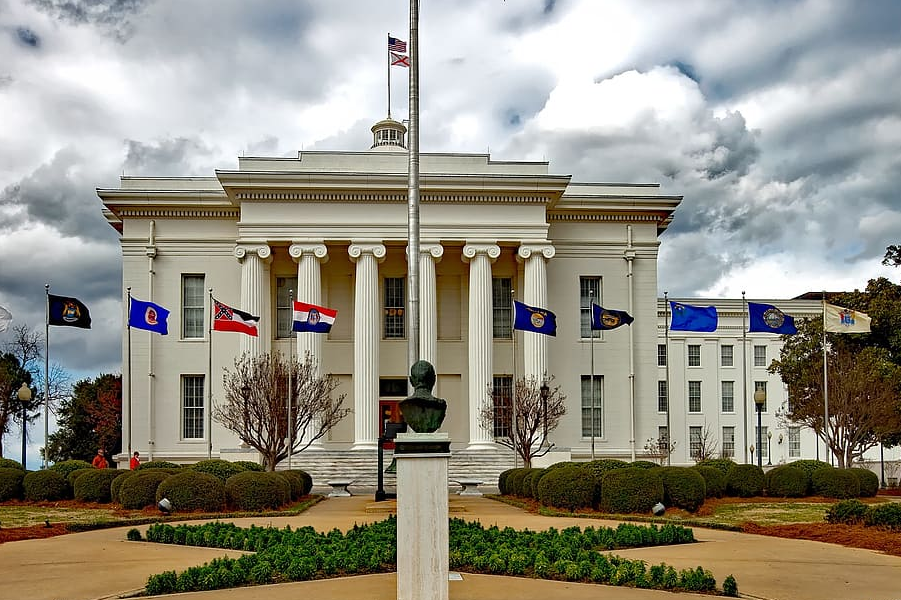After a busy day of committee hearings Wednesday, the state’s Education Trust Fund (ETF) and General Fund (GF) budgets, as well as supplemental funding bills for the current year, are now poised for final consideration in the Alabama Legislature. Passage is expected to come as soon as today, though each bill will likely face conference committee.
Combined, the two budgets would spend more than $11.8 billion next year, the largest figure ever. The ETF and GF supplementals would add just under $3 billion in new spending this year.
Starting with the ETF budget, the topline in the House version remains unchanged from what was passed by the Senate last month, though specific line items did shift.
Of note is the removal of a $15 million appropriation for “support staff minimum salary” from the House Ways and Means Education version of the bill. The Senate added this money to increase the hourly wages of teacher support staff. While the additional $15 million appropriation is gone, language was added to the House ETF budget requiring that all employees receive a minimum of $15 per hour, more than double the state minimum wage for private sector employees. And it’s not just for one year. This is a permanent change in the hourly salary matrix.
Of more immediate interest is the 2023 ETF supplemental appropriation bill. Funding remained the same there too, but with a clear shift in priorities.
For one thing, larger one-time tax rebates are back on the table. Gov. Kay Ivey originally proposed using the ETF’s $2.8 billion surplus to provide nearly $1 billion in rebates to citizens. The Senate ETF supplemental reduced the size of the rebate to $275 million, $105 for single filers and $210 for those filing jointly. The version passed by the House committee Wednesday raises the total amount of rebates to $550 million. Chairman Danny Garrett (R-Trussville) said that would mean one-time rebate checks of $210-$420 for single and joint income tax filers.
Dropping an additional $275 million to taxpayers instead of putting it back into government is a better outcome for Alabamians. However, the benefits of one-time rebate checks are short-lived. Too many permanent tax relief proposals, which will bring long-term relief to citizens, remain stalled in the Alabama Senate.
A proposed $30 million loan program, aimed at providing financial assistance to Birmingham-Southern College, remained in the ETF supplemental package.
Aside from the ETF budget-related bills, a proposed 2% repeal of Alabama’s grocery tax also advanced in committee on Wednesday. As amended, the bill would reduce the tax by 1% beginning Sept. 1, 2023. So long as projected ETF growth is expected to reach at least 2% in fiscal year 2026, an additional 1% would be repealed beginning Sept. 1, 2025.
The grocery tax repeal has almost unanimous support among lawmakers and Alabamians alike. With the future of other tax relief bills uncertain, repealing 2% of the grocery tax could be the best chance at immediate relief for citizens, saving a typical family of four nearly $600 every year once fully phased in.
On the GF budget side, the Senate Finance and Taxation General Fund committee version of the bill comes in at $3.016 billion in funding for the upcoming fiscal year, a $7.1 million reduction from the House-passed version. The Senate version of the 2023 GF supplemental bill was cut by 10.6%, appropriating a total of $180.4 million this year.
The most interesting takeaway from the Senate GF bills is the shifting of priorities away from the ETF. Several questionable projects that once appeared in the ETF supplemental appropriations bill have now found their way into either the Senate’s 2024 GF budget or the 2023 GF supplemental funding legislation.
A $5 million bailout of the World Games, which was in Gov. Ivey’s ETF supplemental request, now has two $2.5 million in line items, one in the GF budget and one in the supplemental. A $5 million appropriation to go towards the relocation of the Mobile airport has moved to the GF supplemental, as well as $20 million for the Port Authority of Alabama.
While it certainly makes more sense to put these projects under the GF budget than education, they remain a questionable use of taxpayer dollars.
The overarching theme of the two budgets is that the size and scope of Alabama’s government is growing to new record levels. Neither does enough to provide permanent tax relief to Alabamians, and time is running out.
Justin Bogie serves as Fiscal and Budget Reporter for 1819 News. The views and opinions expressed here are those of the author and do not necessarily reflect the policy or position of 1819 News. To comment, please send an email with your name and contact information to: Commentary@1819News.com.
Don't miss out! Subscribe to our newsletter and get our top stories every weekday morning.










